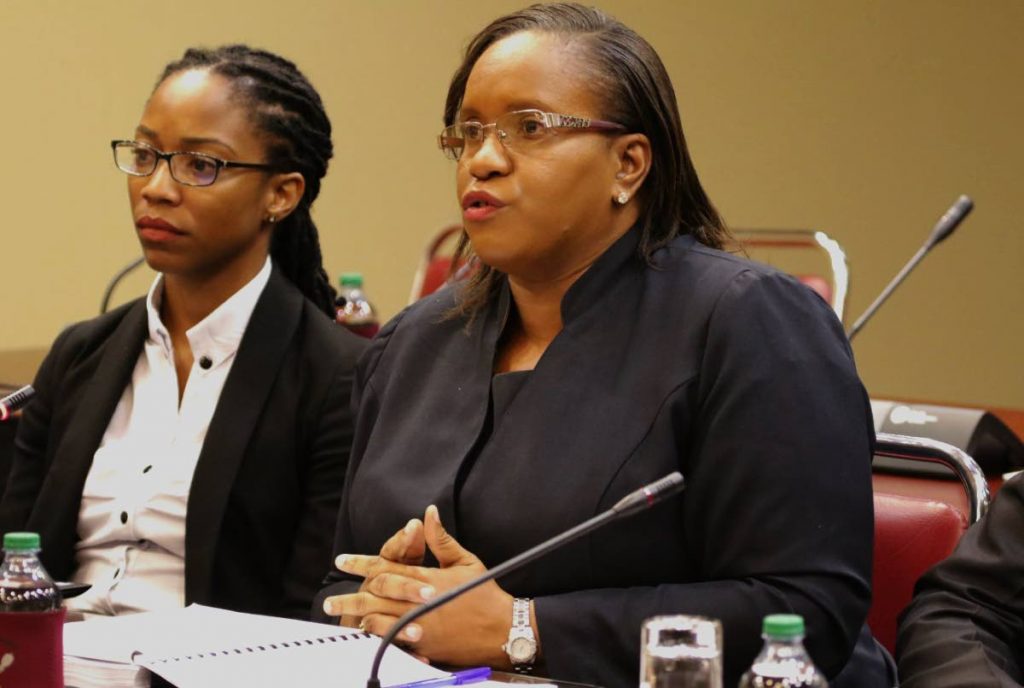15 MEN IN A CELL

PRISON cells inside courthouses, which are supposed to accommodate four to five prisoners, regularly have 14 to 15 people instead.
This was but one of many challenges facing the country’s magistrates courts as revealed by stakeholders yesterday during the Finance and Legal Affairs Joint Select Committee public hearing at Tower D of the Port-of-Spain International Waterfront Centre yesterday.
Court and Process Branch officer Snr Supt John Frederick said there are four cells at the Port of Spain Magistrates Court. This total area can house 14 to 15 prisoners but sometimes there could be as many as 70 prisoners at the courthouse. Due to these circumstances, Frederick said a decision was taken to house 15 prisoners in one cell. This means 60 prisoners are accommodated at the court at any one time.
Should more than 60 prisoners be coming into the system, Frederick said the Prison Service is told the court cannot handle any more. “They would facilitate us,” he added. The Prison Service would ensure there are remand warrants to take prisoners whose matters were not heard, back to the prison. Frederick explained that one of the cells at the court are only supposed to house “probably about four or five prisoners.”
DISEASE
THREAT
But he reiterated, “As the situation is in TT, we have to have about 14 to 15 prisoners in the cell.” Frederick also said there is no place at the court to quarantine prisoners who have diseases. Frederick said the infected prisoner is placed in one cell by himself and the other prisoners are crowded into the remaining cells. Male and female police officers have to share the same toilet. Their dormitory below the court is often flooded by water leaking from toilets from upstairs. He said the police have no internet access in their dormitory. Frederick also said there is a specific arrangement whereby police officers do not bring firearms into the Children’s Court. In other courts, Frederick said police officers can have concealed firearms “in the precincts of the court.”
Assistant Director of Public Prosecutions (DPP) Tricia Hudlin-Cooper said the design of the courts create a “powder keg of disaster” scenario where the lives of prosecutors are at risk. She said it is no secret that prosecutors’ lives have been threatened. She used the murder of attorney Dana Seetahal, SC, on May 4, 2014 to reinforce her argument.
Hudlin-Cooper claimed prosecutors are forced to use the same entrance and bathroom in the courts with “all the actors” including the accused. She some of the accused believe certain prosecutors have “a personal vendetta” against them. “They take it upon themselves to do whatever they can to dissuade that prosecutor from coming (to court),” she said.
This includes physically identifying the prosecutor and send them threatening phone calls. Hudlin-Cooper said this has resulted in some prosecutors being “under armed (police) guard.” She also said “makeshift weaponry” finds its way into the courthouses because people are either not properly checked or not checked at all.
SHARING
SAME TOILET
In the Arima Magistrates Courts, Hudlin-Cooper said the most serious matters are heard on third floor but the bathroom is on the ground floor. When prosecutors have to make their way through “extremely crowded” corridors to get to the bathroom, Hudlin-Cooper said “you do not know whom you will encounter.”
She said DPP prosecutors cannot use alternate bathroom facilities which police prosecutors have access to. These facilities are located in the same area as the prisoners’ holding cells. Hudlin-Cooper said this would bring prosecutors face to face with people who are not happy to see them in or out of court.
Hudlin-Cooper also said prosecutors cannot be so far away from the courtrooms that they do not hear their matters being called.
She claimed that prosecutors’ requests to use different entrances from other people are allowed in some courthouses and “flatly blanked” in others. Hudlin-Cooper also said there was an incident where people at the Rio Claro Magistrates Court had to take cover when shooting happened nearby.
Hudlin-Cooper also said DPP prosecutors do not receive any risk allowance when they appear in courts in different parts of the country. Opposition Senator Taharqa Obika was glad to know people who threaten prosecutors would face the full brunt of the law.


Comments
"15 MEN IN A CELL"